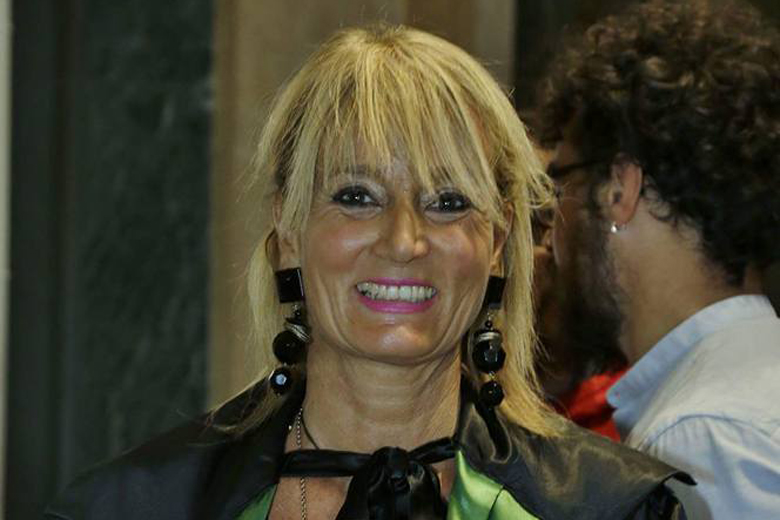Italian family with rare genetic mutation do not feel pain
Sign up now: Get ST's newsletters delivered to your inbox

Ms Letizia Marsili (above) and five of her family members all show signs of being affected by congenital analgesia - more commonly known as the Marsili pain syndrome, named after the family.
PHOTO: FACEBOOK/LETIZIA MARSILI
Ng Huiwen
Follow topic:
Broken bones and burns do not hurt for this unusual Italian family with a rare genetic condition that makes them insensitive to pain.
Ms Letizia Marsili, 52, and five of her family members - her mother, two sons, sister and niece - all show signs of being affected by congenital analgesia.
In an interview with the BBC on Saturday (Dec 16), she said: "From day to day we live a very normal life, perhaps better than the rest of the population, because we very rarely get unwell and we hardly feel any pain."
She added: "However, in truth, we do feel pain, the perception of pain, but this only lasts for a few seconds."
Researchers believe that the condition could be caused by some nerves not reacting properly, according to their findings in a study published in the journal Brain.
It is more commonly known as the Marsili pain syndrome, named after the family, who are believed to be the only one in the world to be affected by this faulty gene.
Now, the research team is hoping that their discovery could shed light on chronic pain and provide relief for sufferers in the future.
Ms Marsili told the BBC that she and her family members often have fractures that go undetected, leading to inflammation in their bones.
They also experience burns and other injuries without knowing.
For instance, her 24-year-old son Ludovico is unfazed when he is knocked down during football games.
"However, he has fragility at the ankles and he often suffers distortions, which are micro fractures," she said. "In fact, recently, X-rays have shown that he has lots of micro fractures in both ankles."
Her younger son, Bernardo, 21, had a calcification of the elbow without even realising he had broken it after falling off his bike.
He continued to cycle for another nine miles (14.5km).
Ms Marsili was also similarly unaware when she fractured her right shoulder while skiing.
She continued to ski all afternoon, only going to the hospital the next morning because her fingers were tingling, she told BBC.
She has had problems in her mouth too, because of a tooth implant that went wrong, she added.
Her sister Maria Elena often damages the top of her mouth because she burns herself with hot drinks, and her daughter Virginia once left her hand in ice for about 20 minutes without feeling pain.
In their study, the researchers mapped out the protein-coding genes in each family member's genome and found a mutation in the ZFHX2 gene.
They found that mice with the genetically altered genes were insensitive to high temperatures.
University of Siena physiology professor Anna Maria Aloisi, among the study's authors, told Newsweek in a statement: "By identifying this mutation and clarifying that it contributes to the family's pain insensitivity, we have opened up a whole new route to drug discovery for pain relief."

